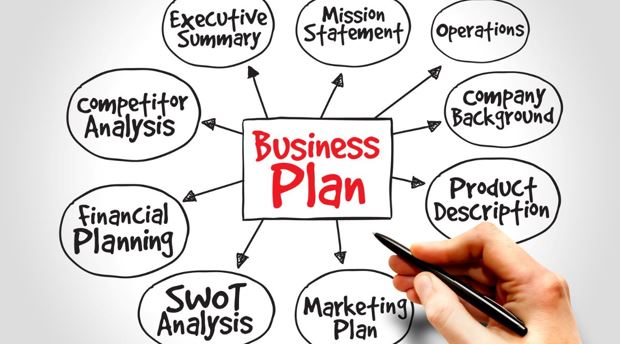Mastering the Art of Business Planning: A Comprehensive Guide
Business planning is a critical step for entrepreneurs and managers aiming to steer their ventures towards success. This comprehensive process involves the formulation of strategies and allocation of resources to achieve desired financial and market positions over a specified period. Thorough business planning not only sets a clear path for growth but also serves as an essential tool to attract funding and partnerships.
Understanding the Significance of a Business Plan
A business plan encompasses every critical aspect of a business’s operations, including Sales, Marketing, Finance, and HR Management. Distinguished by its strategic and financial compass for the business, a well-crafted plan articulates an organisation’s core values, mission, objectives, and the approaches to attain them. Crafting such a document necessitates profound expertise, which often leads companies to seek assistance from professionals like The Business Plan Company, who specialise in developing tailored business strategies.
The Elements of an Effective Business Plan
An effective business plan is not generic; it must be carefully designed to reflect an organisation’s unique vision and operational dynamics. Standard sections include an Executive Summary, Company Description, Market Analysis, Organisation Structure, Product Line or Services Offered, Marketing and Sales Strategies, Funding Request, Financial Projections, and an Appendix. Each section serves its unique purpose and collectively they provide a comprehensive snapshot of the business.
The Process of Writing a Business Plan
To write a business plan, one must begin with exhaustive research to understand the market, competitors, and internal capabilities. Compiling data on trends, customer behaviors, and regulatory environments helps in setting realistic goals and actionable strategies. After the research phase, drafting the plan involves a combination of analytical thinking and creativity to produce a document that is both informative and engaging for investors and stakeholders.
Setting Objectives and Strategies
Central to business planning is setting achievable objectives that align with your company’s overall vision. These goals should be SMART: Specific, Measurable, Achievable, Relevant, and Time-bound. Following these criteria ensures that objectives are clear and that strategies to accomplish them are grounded in reality. Moreover, delineating these objectives serves as a guide for day-to-day operations and in measuring progress.
Financial Projections and Analysis
A major component of a business plan is the financial forecast. Such projections help predict cash flows, profits, and capital expenditure needs. Income statements, balance sheets, and cash flow statements for the near future offer detailed insights into the company’s expected financial position. These are crucial for internal management while also being requisite elements for investors or banks providing capital.
Business Planning Resources and Tools
While business planning can be daunting, numerous resources and tools are available to aid in this process. Entrepreneurs can utilise templates to structure their plans effectively. A well-designed business plan template ensures that all critical components are addressed and provides a uniform structure to share with stakeholders.
Navigating Market Analysis and Environment
Market analysis is vital to understand demand, competition, and potential for market share capture. It involves detailed scrutiny of market size, growth prospects, customer segments, buying patterns, and competitive landscape. This analysis informs product development, pricing strategies, and marketing campaigns, thus shaping the business’s unique selling propositions.
Human Resources and Operational Planning
Human resources and operations constitute the backbone of execution within a business. Operational plans encompass the logistics, technologies, and processes that will be employed in the day-to-day running of the business. Likewise, HR planning anticipates the workforce needed, delineates roles and responsibilities, and defines organisational culture. Both dimensions are foundational to translating strategy into practice.
Refining and Presenting your Business Plan
Once a draft of the business plan is completed, it is essential to refine and polish it. This refinement process isn’t simply about correcting errors or perfecting language. It involves reassessing assumptions, re-evaluating risks, and stress-testing strategies. The final document must not only be persuasive but also resilient to contingencies.
Adapting to Change and Iterative Development
A robust business plan is adaptable. In a rapidly changing business landscape, plans may need to be iterated to reflect changes in the market or internal capacities. This iterative development should be viewed as part of the planning process. As businesses grow and environments evolve, re-visiting and updating the business plan becomes necessary to ensure it remains relevant and actionable.
The Power of Professional Expertise in Business Planning
Crafting a compelling business plan is a complex endeavor and seeking expert guidance can be immensely beneficial. Outsourcing this task to professionals like The Business Plan Company can save time and ensure that the document is of high caliber. Experts not only aid in drafting the plan but also bring industry insights and strategy development skills to the table.
Conclusion
In summary, mastering the art of business planning is a deliberate process that combines strategic foresight, analytical rigor, and practical operational detail. It serves as the blueprint for the future, guiding every decision and tactic. By leveraging the right tools and expertise, entrepreneurs can craft a document that encapsulates the essence of their vision and sets a concrete path for business growth and sustainability.






